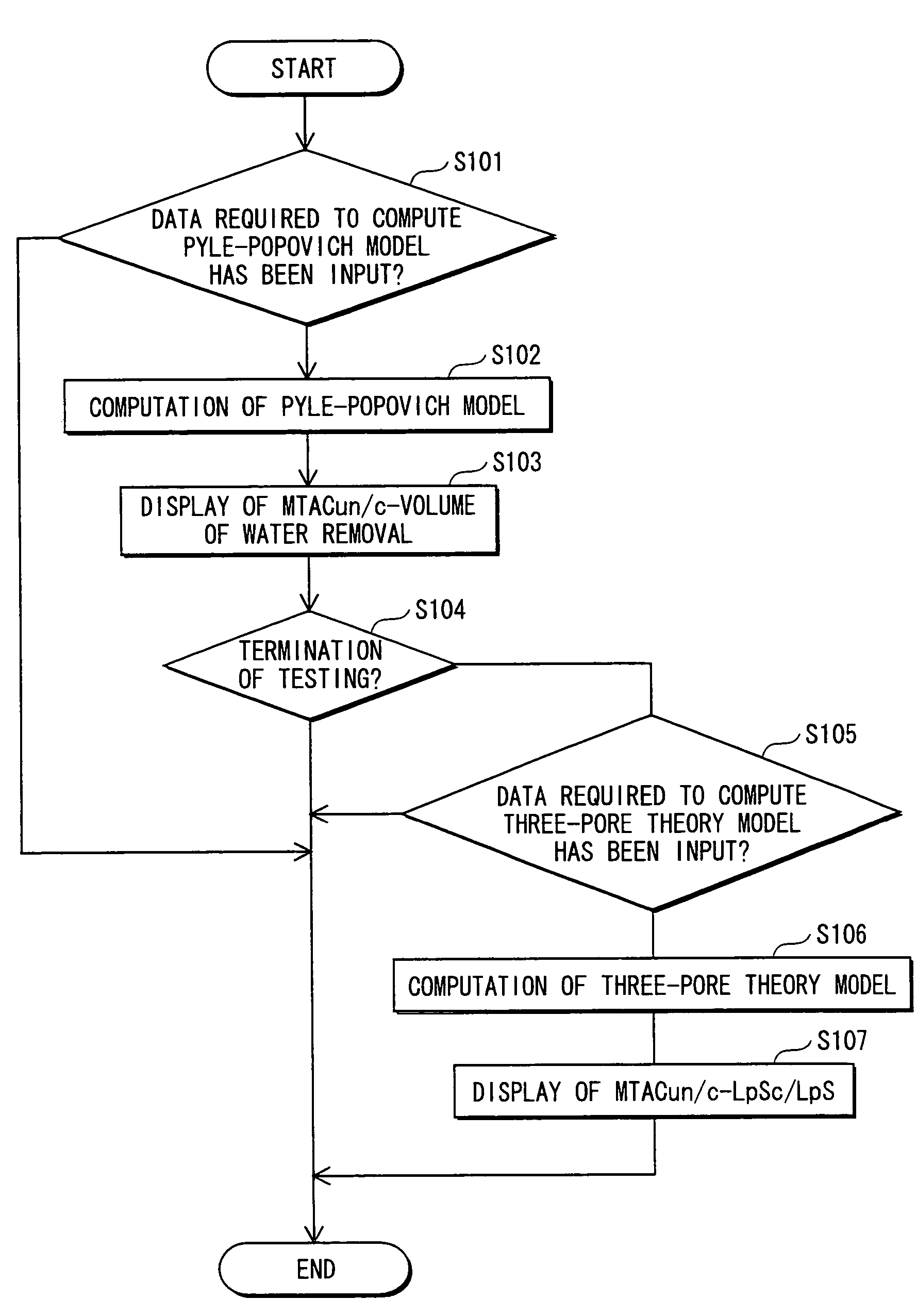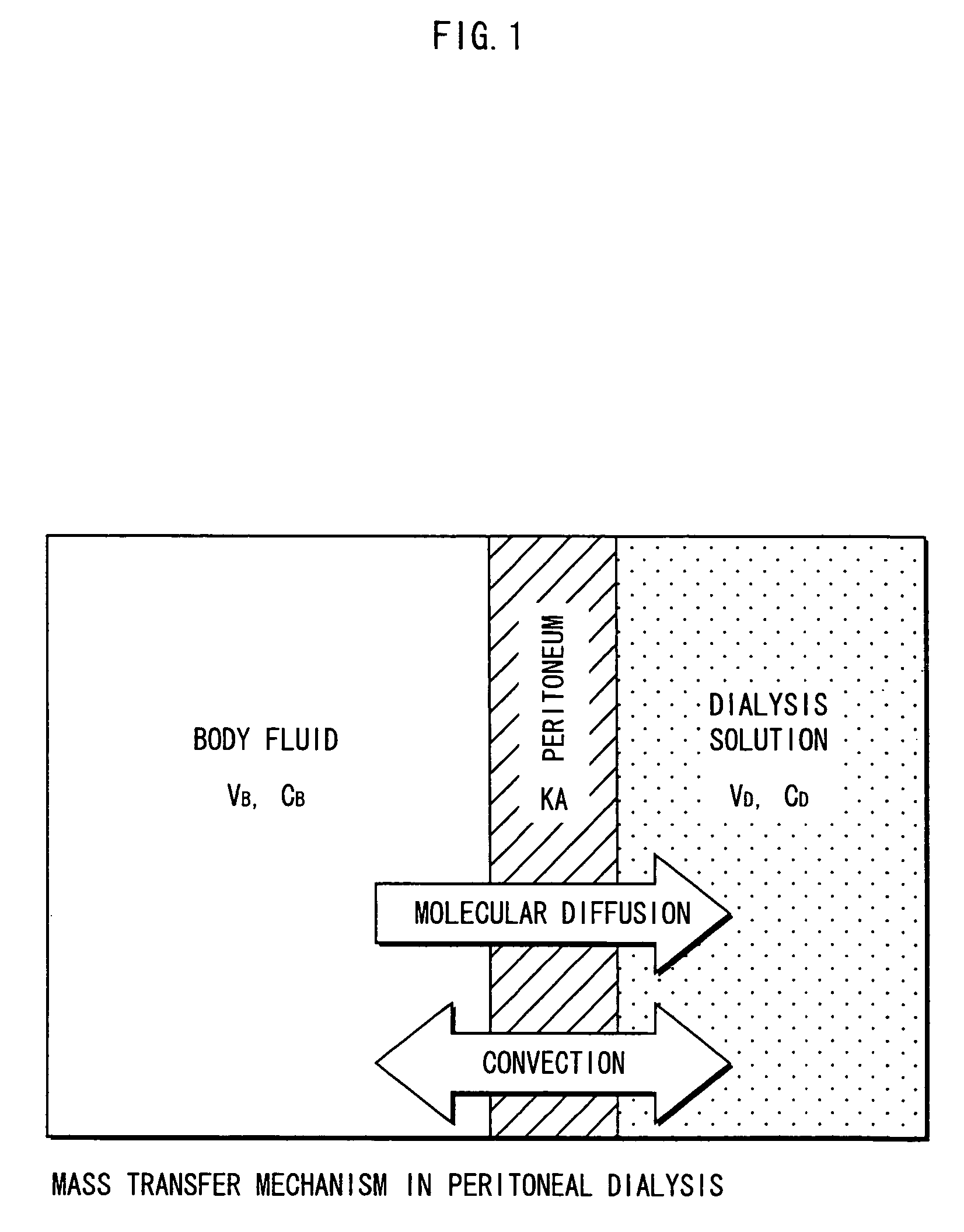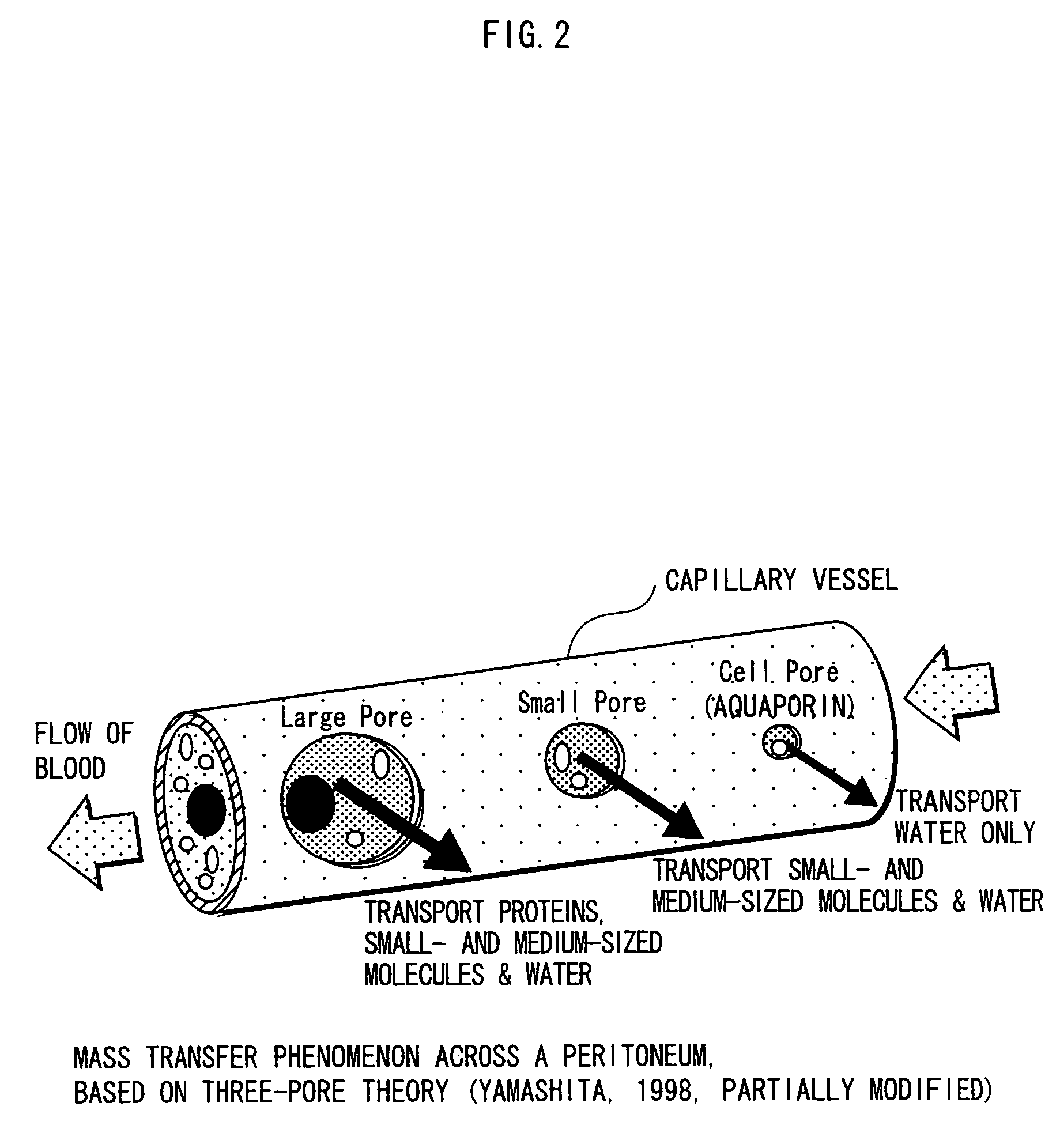Method for testing peritoneum function and a peritoneal dialysis planning apparatus
a technology for peritoneal dialysis and peritoneum, applied in the field of peritoneal function testing and peritoneal dialysis planning apparatus, can solve the problems of impossible determination and difficulty in studying future changes in the peritoneal function of patients, and achieve the effect of higher transperitoneal water removal ra
- Summary
- Abstract
- Description
- Claims
- Application Information
AI Technical Summary
Benefits of technology
Problems solved by technology
Method used
Image
Examples
first embodiment
1. First Embodiment
[0042]Here is described a first embodiment of the present invention.
[0043]The peritoneal dialysis planning apparatus of the present invention (i) computes two mathematical models known as peritoneal dialysis models, (ii) processes the results of computations, and (iii) outputs and displays the processed results. Peritoneal dialysis models include a macroscopic model called the Pyle-Popovich model and a microscopic model based on the Three-Pore Theory. First, a brief description of these models is provided here.
[0044]1.1 Mathematical Models of Peritoneal Dialysis
[0045]FIG. 1 is a cross-sectional view of a peritoneum, concisely illustrating the Pyle-Popovich model. The transfer of solutes from the body fluid to the dialysis solution via the peritoneum, which is assumed to be a homogeneous membrane, is represented by the sum of diffusion of solute molecules into the dialysis solution and convection (mass transfer due to water movement—that is, convective transport, a...
second embodiment
2. Second Embodiment
2.1 Main Characteristics of Second Embodiment
[0129]A second embodiment of the present invention is described next.
[0130]The configuration of a peritoneal dialysis planning apparatus and basic operations of a peritoneal function testing program (including items on the screen display) according to the second embodiment are the same as those in the first embodiment, and therefore the following discusses the second embodiment, focusing on differences from the first embodiment.
[0131]The second embodiment is characterized by achieving a peritoneal function test of higher precision by applying, in the peritoneal function testing program installed on the PC 1, a Genetic Algorithm (GA) to parameter values obtained from the computation of the Pyle-Popovich model to thereby make them an optimal solution for actual measurements of clinical data in advance, and then introducing the solution to the formulae of the Three-Pore Theory.
[0132]In addition, by adopting the Genetic Al...
PUM
 Login to View More
Login to View More Abstract
Description
Claims
Application Information
 Login to View More
Login to View More - R&D
- Intellectual Property
- Life Sciences
- Materials
- Tech Scout
- Unparalleled Data Quality
- Higher Quality Content
- 60% Fewer Hallucinations
Browse by: Latest US Patents, China's latest patents, Technical Efficacy Thesaurus, Application Domain, Technology Topic, Popular Technical Reports.
© 2025 PatSnap. All rights reserved.Legal|Privacy policy|Modern Slavery Act Transparency Statement|Sitemap|About US| Contact US: help@patsnap.com



